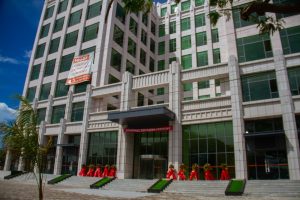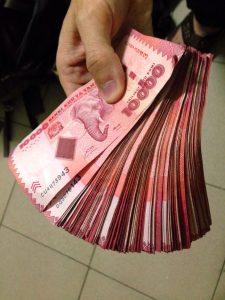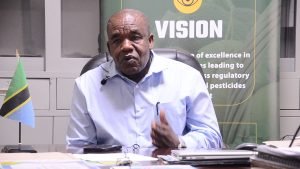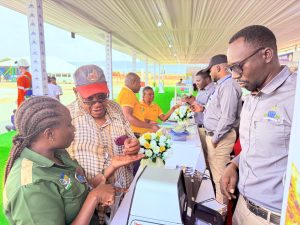Cotton Victoria Project To Train Over 120 Extension Officers In New Cotton Growing Regions
By Valentine
Oforo
AT LEAST
thirty extension officers in each new cotton growing regions are set to be
imparted with recommended agronomic practices for the professional cultivation
of the fiber crop, thanks to Cotton Victoria Project (CVP).
The
robust initiative set to commence from January to April 2024 is expected to
cover the regions of Morogoro, Kigoma,Singida and dodoma, where cotton has
prove to flourish.
CVP is a
brainchild of the partnership between Tanzania Agricultural Research Institute
(TARI)–Ukiriguru Centre and the government of Brazil for improving performance
of cotton sector in Tanzania.
Giving
an exclusive interview to this publication, Dr. Paul Saidia,the Director of
Mwanza- based TARI Ukiriguru Centre expressed that to start with, the focus is
to train at least 200 farmers in each region of target.
“Research
have proved that the four regions have needed potential for the cultivation of
cotton hence the need to impart the farmers with the needed practices to enable
them growing the economic cash crop professionally,” Dr Saidia informed.
The
useful practices to be imparted to the agro- experts, according to him, include
the new cotton planting space of 60 centimeters from row to row , and 30
centimeters from hole to hole, bringing the number of the cotton plants to
44,444 per acre from the formal 22,222 plants.
“We
have decided to start training the extension officers as the best and fast-
track means of reaching out to the farmers in the regions. After mastering the new practices, the
officer will play a meaningful role of training the farmers in their areas of
jurisdiction,” he said.
Explaining
in details, the fiber crop mogul said the new planning system which has been
hatched and introduced through the 5,802,019.08 USD worth project, and which
has also been adopted by the parent ministry plays key role in help the farmers
withstand effect of climate changes, as well as relevant diseases.
“For
instance, through applications of the
system, the farmers in the cotton
growing regions so far reached out by the project have managed to cheat
diseases, and other challenges to the tune of yielding bumper,” he
informed.
The
system, among others have enabling annual tonnage production of the to elevate
to impressive levels, contrary to the past years.
”
The recently report from the Cotton Board of Tanzania (CBT) depict that
production has improved to 280,000 tons in 2023, being from 130,000 and 170,000 tons in the two
previous years respectively, ” Dr Saidia observed.
Dwelling
over set plans in 2024, he said the state-owned agriculture research institute
will continue to bridge efforts with numerous stakeholders from private sector,
and international partners to ensure the sector attain more good results.
“The
focus is to have the sector producing at
least 500,000 tons by 2025, whereby the
set prime vision is to attain 1millon ton annually, ” he expressed.
He
added, in 2024, plans are to cottoning up more initiatives to ensure the
farmers in all cotton growing areas across the country to adopt modern
cultivating practices, but also to timely
supplied with key inputs.
The
project, Cotton Victoria, is implementing in cooperation with several
stakeholders in the cotton value chain from within and outside the country,
include the ministry of agriculture, the Brazilian Cooperation Agency (ABC),
the Brazilian Cotton Institute (IBA), the Federal University of Lavras (UFLA),
and the Tanzania Cotton Board (TCB).
The
initiative works to heighten the institutional capacity and human resources
training in the use and dissemination of technology in the cotton production
sector in the country.
The
Victoria Cotton Project, and Beyond Cotton Project, all under the financial auspices from Brazil
have so far played a great role to heighten the performance of the sector among
the farmers in several regions, such as Mwanza, Tabora, Geita, Katavi, Shinyanga, to mention but a
few.
“Since
the inception of the project, Dr. Saidia
informed, the initiative has been
providing training, technical assistance and demonstration plots to thousands
of cotton farmers who have been working hard to improve their crop management
and increase their yield,” he expressed.
Among
others, the project also majors to out
vital agro implements as tractors, ploughs, planters, sprayers, harvesters, and
ginning machines.
“These
tools are necessary to mechanize some of
the labor-intensive tasks in cotton production, such as land preparation,
planting, weeding, spraying, and harvesting,” he observed.
Cotton
stands among the strategic economic cash crop in Tanzania, currently attracting
a total of 500,000 who are cultivating at least 1,000,000 acres in different
regions across the country, including Geita, Tabora, Katavi, Shinyanga and
Mwanza, among others.
Despite
being endowed with the friendly agriecological zones to support cotton farming
and fiber production, cotton production and productivity in Tanzania has for
years been crippled with numerous setbacks in recent years, such as poor
agronomic practices, pests and diseases, low quality seeds and lack of access
to markets.












